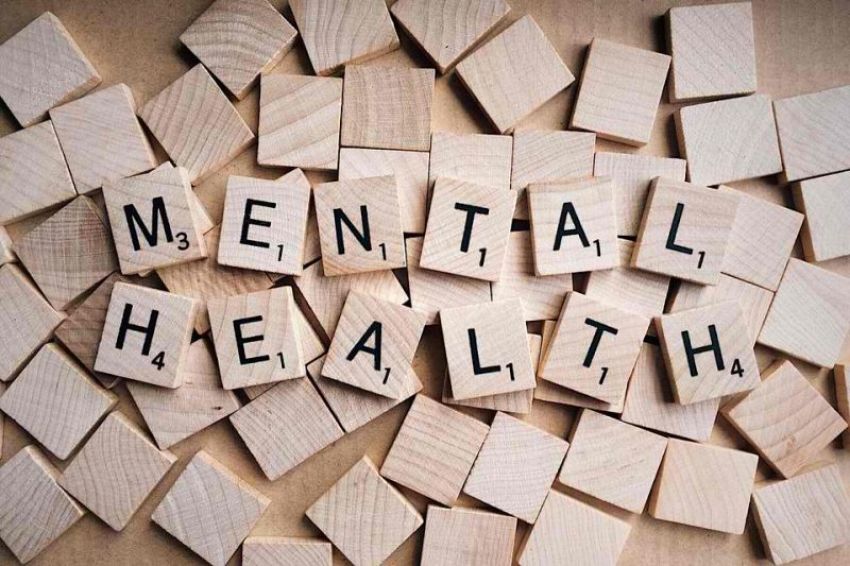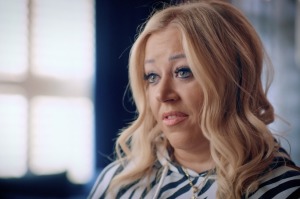COVID-19 isolation led to massive spike in mental health struggles; churches must be on ‘frontlines’: Rock Recovery director
Mental Health Awareness Month highlights healing power of making connections with others

Mental health struggles exacerbated by the isolation brought on by lockdowns in response to COVID-19 led to a massive spike in the number of people seeking help for eating disorders, according to Christie Bettwy, executive director of Rock Recovery.
“Isolation is a huge piece of what allows mental health conditions to really thrive,” Bettwy said in an interview with The Christian Post. “Breaking isolation is a huge part of recovery, so that’s one thing we’ve seen is a lot more people reaching out for help because of the isolation and the tough environments.”
Rock Recovery, a Christian nonprofit based in Arlington, Virginia, provides recovery programs and bridges gaps for those struggling with eating disorders. Bettwy said they saw a 400% increase in people reaching out for help when COVID-19 first began.
The National Alliance on Mental Illness' message for Mental Health Awareness Month is “You Are Not Alone.” The slogan emphasizes the healing that comes from making connections with others.
Millions of Americans struggle with mental health each year, and the effects of the COVID-19 pandemic have led to an increase in those struggles, especially with the isolating effects of lockdowns.
Bettwy told CP that she struggled with an eating disorder for a decade, from age 13 to 23. Her journey to freedom began when she attended a six-week New ID recovery course for disordered eating offered by a church she visited.
“The church just needs to start the conversation about mental health," she said. "Even if it’s not done perfectly, I think it’s good to just open the door and say, ‘there’s no shame in struggling with things. If you’re depressed, it doesn’t necessarily mean you’re not praying enough. It’s not your fault."
“I think a lot of times with mental health, we equate it with being someone’s fault, like ‘why can’t they just be more joyful, why aren’t they praying more,’ … when it’s just not at all how it works,” she continued. “I think there is some progress with people understanding how much the brain and how much the different biological factors affect us as humans.”
She said the church needs to normalize the conversation around mental health conditions and break the stigma that leads to people being misunderstood.
“We often equate behavior and belief with action. I think, with mental illness, it’s a brain disorder and it just sort of shows up in our behaviors. But it’s not a sin to be sick,” she stressed.
Since people deal with mental health conditions “in every congregation everywhere,” it needs to be discussed and the Church should be on the “frontlines” of those struggling with mental health, Bettwy said.
“I think, unfortunately, a lot of people don’t talk about mental health from the pulpit or talk about it upfront, and we really think that the church is the frontlines for people who are struggling with mental health conditions,” she said.
“And we know when people talk about mental health or their own struggles in their sermons, it’s hugely healing and helpful for people to ... normalize these issues because everybody struggles with something. Mental health is something that is super common for someone to struggle with, even in the church,” she emphasized.
Many people never seek help for eating disorders or mental health conditions because they don't know where to start, she added.
“The church is such a community of trust that when used well, it can really make a difference in helping people connect with the care that they need,” Bettwy said. “The church can’t be all things to all people … but the church can really help triage and connect people to care in appropriate ways.”
It was at church that Bettwy realized she had an eating disorder that needed treatment. Through her recovery process, Bettwy also came to faith in Jesus.
“The second I realized there is this grace for me and God made my body and actually cares about it, and there’s something more to life and that my identity is not about my achievements or my appearance, that really shifted things for me …,” she said.
Integrating faith into the recovery process is “powerful” and often leads to better outcomes, Bettwy shared.
“The clients who do both a clinical program and a faith support program, their outcomes are just above and beyond anything we typically see,” she explained.
“ … Your identity and what it’s founded on, it’s so important to bring your faith into that process and it’s really hard to do that,” she added. “A lot of treatment and a lot of clinical care has become really secularized, and we find that for people of faith, integrating your faith into treatment is what makes all of the difference and is such a powerful, powerful thing.”
Bettwy said she had to “tear down” her false beliefs and rebuild them on the Rock. The name for Rock Recovery, which was founded in 2007 by Carylynn Kemp Larson, came from this idea of building your life on the Rock that is God.
“Recovery is a lot of different baby steps strung together, so just do the next right thing,” Bettwy said.
She encourages anyone dealing with a mental health problem or eating disorder to “involve people in the journey,” whether that's telling a loved one or pastor or calling a therapist.
A virtual session of the New ID six-week recovery course for disordered eating by Rock Recovery begins on May 26.
Emily Wood is a reporter for The Christian Post. She can be reached at: emily.wood@christianpost.com



























